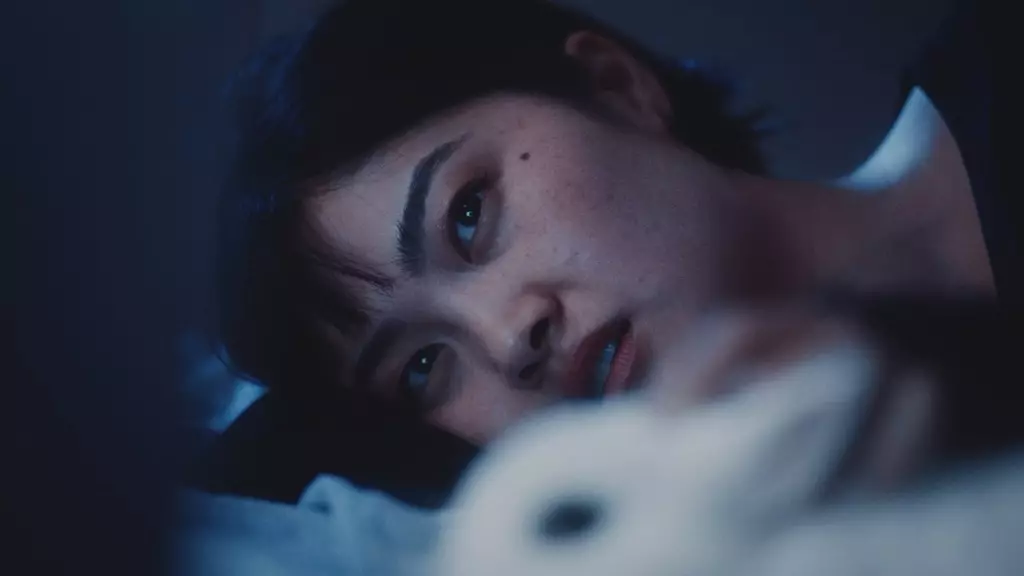Katarina Zhu’s feature film debut, “Bunnylovr,” is not merely a flick; it is a kaleidoscopic lens reflecting contemporary struggles surrounding identity, self-worth, and societal pressure in an increasingly digital-centric world. By intertwining her personal experiences with broader themes, Zhu crafts a narrative that resonates deeply with young adults, particularly those facing the complexities of modern relationships—both virtual and real.
Set against the vibrant yet alienating backdrop of New York City, the film follows Becca, played adeptly by Zhu herself. A Chinese American navigating her twenties, Becca epitomizes a generation caught in the crossfire of expectation and the quest for self-fulfillment. The crux of Becca’s life lies in her dual existence: a bittersweet reality where she juggles being a cam girl whilst yearning for genuine connections. The arrival of Milk, a live bunny gifted by a persistent cam client, serves as a metaphorical anchor in her chaotic life, introducing significant developments to the narrative.
At its heart, “Bunnylovr” provides a scathing critique of the objectification and fetishization that so often plagues women’s experiences. Every character Becca encounters seems to diminish her multifaceted identity into mere projections of their desires or needs. William, her estranged father, views her through a lens of nostalgia as his “lucky charm” for gambling success, while John, the cam client, reduces Becca to a transactional figure. Rachel Sennott’s portrayal of Bella serves as yet another angle of the same troubling narrative; while she claims to be a supportive friend, her artistic lens exploits Becca’s insecurities, presenting a layered interaction that many viewers might find relatable.
While these dynamics echo dishearteningly familiar tropes in modern relationships, Zhu possesses the skill to render them with both humor and gravity. This delicate balance offers audiences not just moments of levity but also a rich canvas for contemplation on the pervasive issues surrounding poverty, privilege, and the complexities of female friendship.
The most striking symbolic narrative tool employed in “Bunnylovr” is undoubtedly the bunny itself. Initially, the creature represents Becca’s trepidation; it is a reminder of the connections she is hesitant to embrace. However, as Becca’s relationship evolves with Milk, the bunny transitions into a vessel of self-care—an emblem of agency in a world rife with control and objectification. It becomes a powerful motif for nurturing and protection, catalyzing Becca’s journey toward self-acceptance and growth.
The inevitable march of time and Becca’s relationship with her father spellbind the film’s emotional trajectory. Their encounter makes for a painful yet critical moment in the narrative, forcing Becca to face unresolved feelings that echo throughout her adult life. Here lies a poignant realization: the absence of her father’s presence creates a void she seeks to fill through meaningless connections, a theme that resonates with many who struggle with familial relationships.
Ultimately, “Bunnylovr” is an exploration of self-discovery in a digitized society that often commodifies individuals. Zhu’s script nudges viewers to reconsider the ‘happy-ending’ trope, delving instead into a nuanced journey where Becca emerges not as a perfected version of herself but as a more aware individual who embraces the good while confronting her demons.
As the film concludes, it is evident that healing, especially for those like Becca who feel alienated or objectified, is not a straight path but a winding road filled with complexities. Zhu’s storytelling invites audiences into a relatable and cathartic experience, urging them to confront their emotional landscapes while fostering meaningful connections—both with themselves and others.
In a world that often seeks to define women’s roles beneath layers of expectation, “Bunnylovr” shines a light on the struggles that accompany the fight for authenticity and belonging. It is a compelling debut that marks Zhu as a significant voice in contemporary cinema, catalyzing discussions that are both needed and timely.
